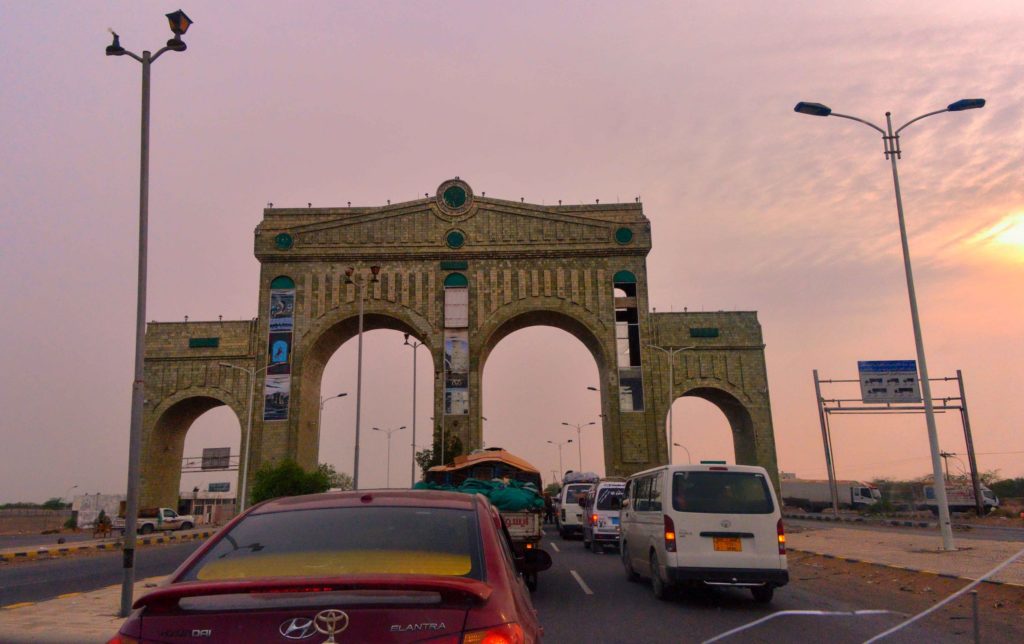Battles raged Monday, November 5 near a Yemeni port crucial for humanitarian aid, but Saudi Arabia and its allies said they were committed to de-escalating hostilities with rebels as calls for a ceasefire mount.
The United Nations has appealed for urgent peace talks and warned that an assault on the Red Sea port city of Hodeidah would threaten millions of lives.
Yemeni government forces, backed by a regional military coalition led by Saudi Arabia and the United Arab Emirates, say they are now positioned around both the north and south of Hodeidah, where clashes have left dozens dead.
The city and its port have been controlled by the Houthis – Iran-backed Shiite insurgents who hail from northern Yemen – since 2014 along with the capital Sana’a.
Rebels and government sources both reported intense fighting in the area Monday, despite calls by the U.N. and the United States – which provides military support to the Saudi-led camp – for an end to the war.
A source in the Saudi-led coalition told AFP the clashes were not “offensive operations,” adding that the alliance was “committed to keeping the Hodeida port open.”
But three officials with the Yemeni military said fighting continued to flare around Hodeidah, whose port is the entry point for three quarters of the country’s imports.
The head of the Houthis’ revolutionary council, Mohammed Ali al-Huthi, on Monday reported a “military escalation by the coalition,” slamming the operation as “a strenuous attempt to block talks aimed at ending the war and finding peace.”
Renewed offensive?
Yemeni military officials said the coalition had sent fighter jets and Apache attack helicopters Monday morning to back up troops on the ground around Hodeidah.
The officials say government forces are trying to advance on the outskirts of Hodeidah with the aim of surrounding the city and cutting off a major rebel supply route.
The coalition source however said the government alliance was “committed to de-escalating hostilities in Yemen and strongly supportive of the U.N. envoy’s political process.”
“If the Houthis fail to show up for peace talks again, this might lead [us] to restart the offensive operation in Hodeida,” the source said.
“The humanitarian situation in Yemen is unacceptable. We are committed to ending the conflict as soon as possible.”
U.N. envoy Martin Griffiths aims to bring the government of Abd Rabbo Mansour Hadi and the Houthis to Sweden for talks in the coming month.
The Saudi-led alliance had suspended an offensive to take Hodeidah in August, ahead of U.N. efforts to hold negotiations in Geneva that eventually collapsed the following month.
The Houthis refused to travel to Switzerland unless the United Nations guaranteed both their delegation’s safe return to Sana’a and the evacuation of wounded fighters.
Saudi Arabia and its allies, which control aid deliveries to Hodeidah through Yemen’s seafront, accuse Iran of smuggling missiles to the Houthis through the port.
The rebels control northern Yemen and have regularly targeted Saudi Arabian border towns as well as the capital Riyadh with ballistic missiles.
Toll rises
Medics at two hospitals in Hodeidah province said they had counted the bodies of a total of 74 rebels and dozens of wounded, requesting anonymity as they were not authorized to brief the press.
Sources at a military hospital in government-held Mokha, south of Hodeidah, said 15 troops were killed over the same period.
Saudi Arabia and its allies intervened in the Yemen conflict in 2015 with the aim of bolstering Hadi in the face of the Houthi insurgency.
The World Health Organisation estimates nearly 10,000 people have been killed since then, and human rights groups say the toll could be five times higher.
Fourteen million people now stand at the brink of famine in Yemen, which the United Nations has called the world’s worst humanitarian crisis and “a living hell” for children.
With reporting from AFP



